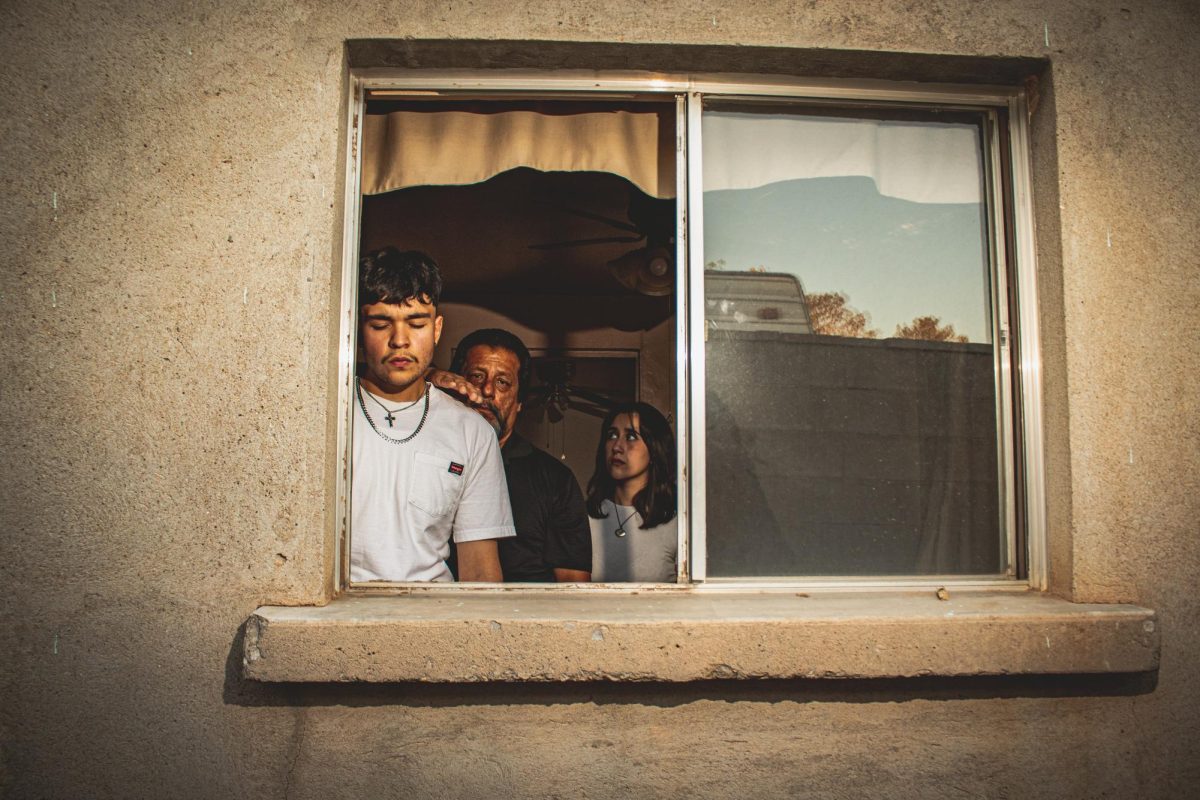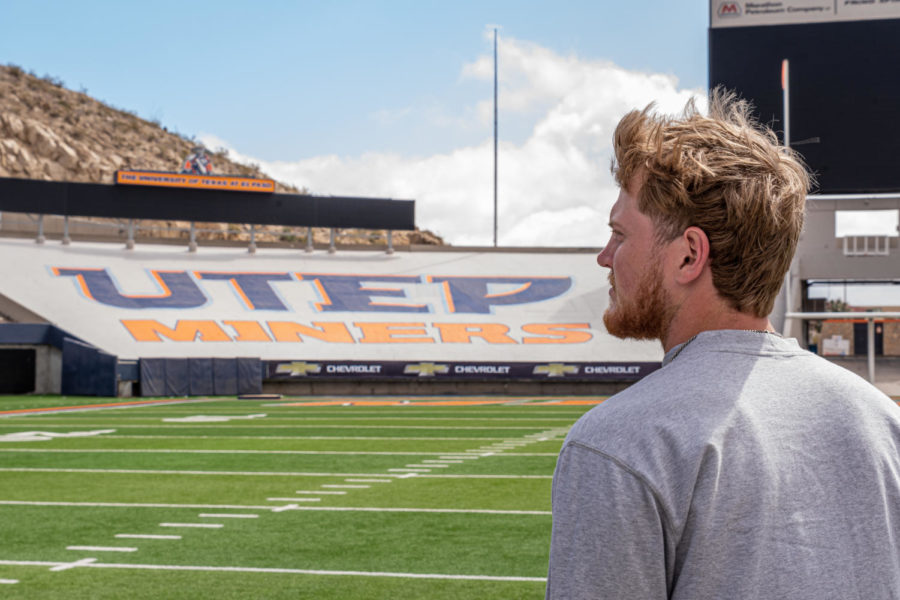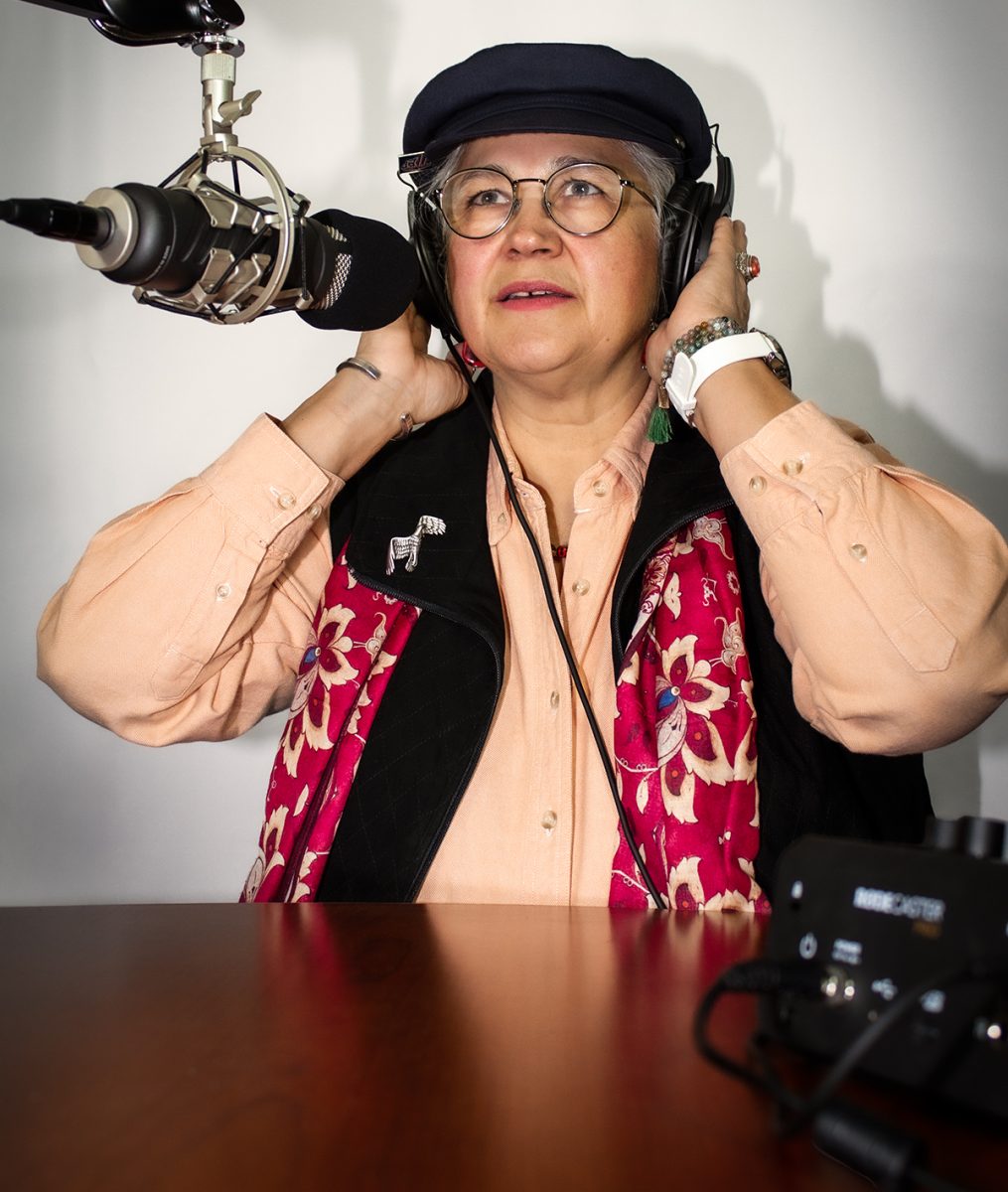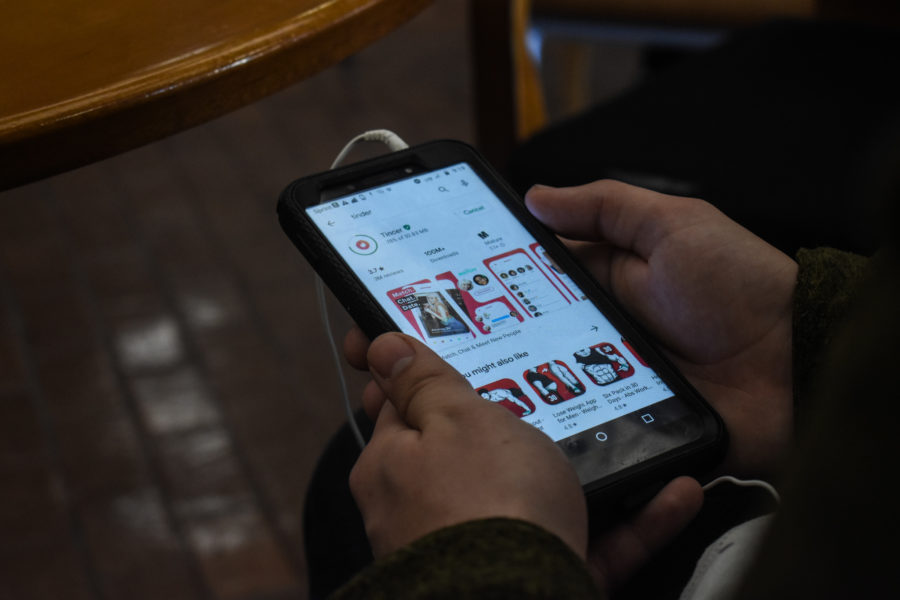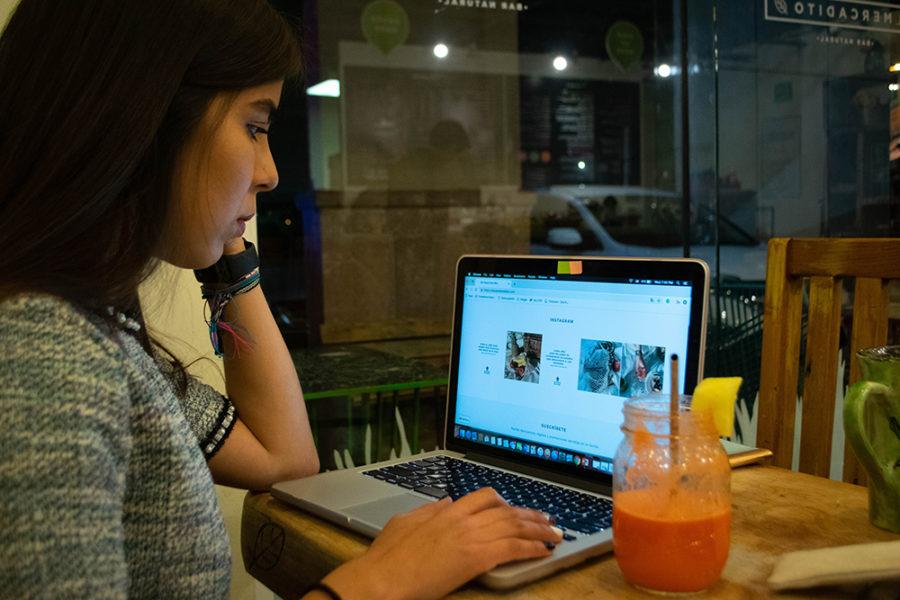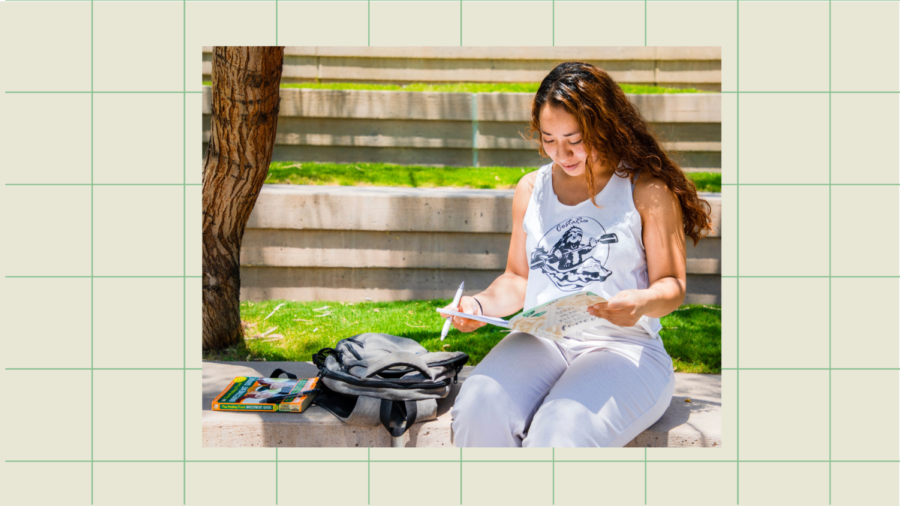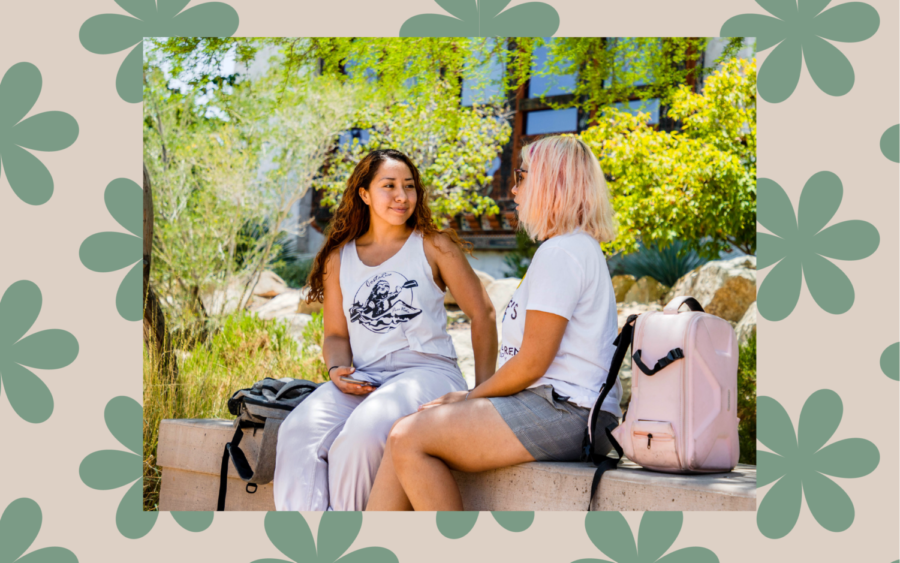Anxiety disorders affect 40 million adults in the United States every year, according to the Anxiety and Depression Association of America, a nonprofit organization that raises awareness for anxiety disorders.
Anxiety comes in different forms and the cause varies from person to person. The list of these disorders includes post-traumatic stress disorder (PTSD), obsessive-compulsive disorder (OCD), social anxiety, generalized anxiety and more.
What exactly is anxiety?
“Anxiety is really the body’s natural response to stress. Anxiety can manifest itself through us mentally, emotionally, and physically,” says licensed psychologist Jorge Marquez from The University of Texas at El Paso.
Dr. Marquez is the Assistant Director for UTEP’s Counseling and Psychological Services (CAPS). CAPS is a free service for UTEP students to receive therapy from licensed counselors for any issues they may
experience.
Dr. Marquez explains that anxiety can cause racing thoughts, difficulty in concentration, irritability, feeling scared, nausea, stomach problems, shortness of breath and much more. However, according to Dr. Marquez, it is important to note that anxiety affects each person differently and while one person may feel a certain set of symptoms another might not feel the same thing.
“You feel this kind of tightness in your chest and it starts getting harder and harder to breathe and next thing you know you just feel like you need to make a run for it. You could be alone in your room and all you get
is this feeling to run or hide,” explains UTEP student Matthew Torres, a senior majoring in history with a minor in museum studies.
Matthew’s anxiety emerged three years ago when he felt pressure to keep his grades up. At the time, he was struggling to do so while dealing with family issues, which amplified his anxiety.
“When I had it, I started to shut myself off. I was so anxious and getting all these anxiety attacks about my grades. I shut myself off from my family, loved ones and friends who always tried to help me,” Matthew says.
Eventually, Matthew realized he needed help and found comfort in speaking to a counselor at UTEP’s CAPS about his issues.
“After a while, I started going to a counselor to finally start getting things off my chest,” he says. “I started to not take things as hard as I used to. Learned to teach myself (how) to breathe and not freak out if something did not go my way.”
Viridiana Carrillo, a UTEP student who is currently a junior majoring in nursing, is also struggling with anxiety. Her story vastly differs from Matthew’s.
“When I have anxiety, my skin begins to itch and I have back pains,” Viridiana says.
According to Viridiana, her anxiety started when she entered the nursing program, but her anxiety issues do not only stem from the stress of school. Every day is a constant worry for her as she wakes up at 6 in the
morning (sometimes even 4 a.m.) to begin her commute to the university from her hometown Ciudad Juárez.
“I always need to check how long it’ll take to cross that day. This causes me a lot of anxiety because sometimes, it is one hour, another day it is just 5 minutes,” she says.
Although Viridiana normally crosses over by car, she will occasionally cross by walking and then take the bus to school because sometimes it is faster to do so.
Similar to Matthew, Viridiana found comfort in speaking face-to-face about her struggles with anxiety.
“I talked to one of the academic advisors and they helped me relax and make a plan for what I needed to do to pass my classes when I had failed a class,” Viridiana says.
Viridiana learned that focusing on one thing at a time helped calm her anxiety. Nursing students tend to have a lot of homework and have to spend several hours every week studying for exams and quizzes.
“Future planning causes me a lot of anxiety, so I just focus on one thing,” Viridiana says.
Anxiety and depression-related issues are common topics at CAPS.
“A lot of students come in for relationship difficulties, for family difficulties, maybe a loss of a loved one. Maybe something traumatic happened to them”, Dr. Marquez says.
“Students may be experiencing unhealthy relationships or abuse in relationships that could be emotional abuse, physical abuse, sexual abuse. It can range from anything such as difficulties adjusting to life at college to…difficulties communicating with parents.”
These services are strictly confidential and both English speaking and Spanish speaking students are free to speak about anything they are struggling with. Individual sessions are limited to eight per semester and 24 sessions total, per degree. If a student pursues a doctoral or master’s degree they receive 24 more sessions. However, they also offer group sessions that meet weekly and students can attend as many as they would like.
“I think it’s very important to realize that it takes courage and bravery to address one’s problems”, Dr. Marquez says. “A lot of times maybe we have been taught it is a sign of weakness if we seek help but actually it is the opposite. It takes a very, very brave and courageous person to seek help.”
Ways of alleviating anxiety’s effects
So, what are some ways to deal with anxiety? For Matthew and Viridiana, talking to a counselor has helped them both immensely. But besides counseling, there are other methods to treat issues like anxiety.
Micah Abraham, a writer for Calm Clinic, suggests self-help techniques such as positive self-talk, therapy, or medication in
an article on the clinic’s website.
“Commitment to treatments is important because most treatments will not work right away. They take time, and there will be setbacks along the way,” Micah says.
Micah’s article also has an anxiety test to take which will help you understand your anxiety better and will give you a score based on data that has been gathered to measure a person’s anxiety levels. It then proceeds to set goals and recommendations for your anxiety based on your score and on what you would like to improve.
There are also many apps for anxiety that track your moods and thoughts. These apps include guided meditation, weekly assessments to note progress and more. An app that includes all of these things is called “Sanvello for Stress & Anxiety.” Normally you would have to pay for premium access or check if your insurance covers this app, but due to COVID-19, the premium version is free for everyone.
“One of the most important things is balance. Balancing your priorities and responsibilities but also balance that with self-care, hobbies, and interests,” Dr. Marquez says. “These are things that happen. Students should feel that these things aren’t unusual or bizarre. It does not make them crazy.”
If you are a UTEP student interested in the counseling services mentioned in the story you can find more information on their website at www.utep.edu/student-affairs/counsel/ or at the CAPS office located at Union West, room 202.
By Angela Grijalva
En Breve
La ansiedad afecta a 40 millones de adultxs en Estados Unidos cada año, según la Asociación de Ansiedad y Depresión en América, una organización sin fines de lucro que crea consciencia sobre los trastornos de la ansiedad.
La ansiedad se manifiesta en diferentes formas y sus causas varían de persona en persona. La lista de estos trastornos incluye: estrés post-traumático (PTSD por sus siglas en inglés), trastorno obsesivo compulsivo (OCD), ansiedad social, ansiedad generalizada, entre otros.
“La ansiedad es realmente la respuesta natural del cuerpo hacia el estrés.
Se manifiesta a través de nosotros mentalmente, emocionalmente y físicamente”, dice el psicólogo y director asistente del departamento de Terapia y Servicios Psicológicos (Counseling and Psychological Services o CAPS) de la Universidad de Texas en El Paso, Jorge Marquez.
Según Dr. Marquez, CAPS es un servicio gratis para estudiantes de UTEP donde pueden recibir terapia de psicólogxs certificadxs para brindar apoyo en problemas que los estudiantes puedan estar experimentando.
Dr. Marquez afirma que, la ansiedad afecta a cada persona de distinta manera.
“Sientes esta presión en el pecho y empieza a ser más difícil respirar y la siguiente cosa que sabes es que nada más sientes que necesitas correr”, explica Matthew Torres, estudiante de historia y estudios de museos en UTEP. “Podrías estar solo en tu cuarto y sólo tienes estas ganas de ir a correr o esconderte”.
La ansiedad de Matthew surgió cuando sintió la presión de mantener buenas calificaciones. Eventualmente, Matthew se dio cuenta que necesitaba ayuda y encontró refugio al hablar con un psicólogo en CAPS.
“Empecé a ir con un psicólogo para finalmente empezar a sacar cosas de mi pecho”, Matthew dice. “Empecé a no tomar las cosas tan duro como solía hacerlo. Aprendí a enseñarme (cómo) respirar y no volverme loco si algo no salía como lo esperaba”.
Viridiana Carrillo, estudiante de enfermería en UTEP, también lidia con la ansiedad debido a que se despierta a las 6 a.m. (y a veces a las 4 a.m.) para cruzar la frontera y llegar a la universidad desde su hogar Ciudad Juárez.
“Siempre necesito checar cuánto me tardaré en cruzar ese día”, Viridiana dice. “Esto me causa mucha ansiedad porque a veces, puede ser una hora, otro día pueden ser sólo cinco minutos”.
Al igual que Matthew, Viridiana encontró consuelo al hablar sobre su estrés añadido por la incertidumbre en los tiempos de los puentes y la presión de mantener buenas calificaciones. Ella aprendió que puede calmar su ansiedad al enfocarse en una sola cosa a la vez.
“Creo que es muy importante darse cuenta que se necesita coraje y valentía para abordar los problemas de uno”, Dr. Marquez dice. “Muchas veces tal vez nos han enseñado que es una señal de debilidad si pedimos ayuda, pero es justamente lo contrario. Se necesita una persona muy, muy valiente y audaz para buscar ayuda”.
Aparte de descargar apps gratuitas como “Sanvello for Stress and Anxiety”, lxs estudiantes de UTEP pueden ponerse en contacto con psicólogxs en la página web de CAPS (www.utep.edu/student-affairs/ counsel/) o ir a la oficina en Union West, cuarto 202. CAPS ofrece ayuda en inglés y español.
Por Angela Grijalva








